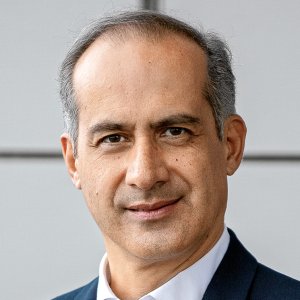Looking for a Third Home Run on Reforma

STORY INLINE POST
Q: From your experience, how has the Mexico City office market performed in 2018 and what are your expectations for the future?
A: The Class A office market has continued to grow at record levels in Mexico City. 1Q18 was a record due to the movement to quality buildings as a result of the September 2017 earthquake. Then, due to various economic factors such as the presidential elections, NAFTA renegotiation and rising interest rates, the velocity of transactions in 2Q18 slowed down. Since the elections in July and the announcement of the USMCA trade agreement, some certainty is stabilizing the Mexican economy. As a result, corporate decision-making on office leases has been very active during 2H18.
The increase in interest rates is keeping the “silly money” out of the market. There is a saying in real estate that bad money chases out good money and in the last couple of years, easy access to cheap capital has allowed almost anybody to build an office project. The office market has seen an incredible amount of new construction and this excess supply of product is not substantially competitive, which has forced some developers to set lower prices to lease their lower-class buildings. The market takes time to realize which new buildings are truly class A from those that may be a B-. The market has expanded but the oversupply of product that is not truly A-level has caused some confusion among tenants.
Transactions that were on hold are now being finalized and we believe 2018 will end with much higher overall net absorption than we have averaged in the last 10-15 years. During the last 20 years, the Mexico City market typically absorbed 200,000-225,000 net rentable square meters (RSM) per year. In the last three years we have been at levels well over 300,000RSM. I am confident that 2018 will also end in the same amount.
Q: What are Reichmann International’s plans to continue transforming the Reforma Corridor?
A: We are looking for new plots of land on the Reforma corridor to develop a new tower. Torre Diana was our second home run after Torre Mayor and both have been quite the success. With the tenant expansions that we have done recently, Torre Diana is now down to its last 500m2 available for lease of the building’s 64,000m2 capacity. All over the world, Reichmann International has always been attracted to central business districts (CBDs) and it has always been our strong suit. We truly believe that any city is best defined by its CBD. There are also many opportunities in Santa Fe and Insurgentes. But Reichmann can provide special services to the types of tenants, both national and international, that are oriented toward the CBD.
Q: What is the most difficult aspect of acquiring land to develop a project?
A: One of the main challenges to acquire land, particularly on Reforma, is the time it takes to negotiate with the owners. My experience in Mexico is that properties tend to be passed down from generation to generation. This makes it challenging because what was once a negotiation between five family members can quickly turn into 14 members that have conflicting interests. Achieving a 100 percent consensus from the stakeholders to close a deal becomes very difficult. In the case of Torre Mayor for instance, it took more than five years to assemble five different parcels next to the tower. Those parcels were owned by families and individuals with whom we had to negotiate one by one to obtain the land. The land for Torre Diana was originally seven different parcels that were part of a trust that was created by a former minister of education in the 1920s. Instead of leaving it as an inheritance for his children, the previous owner placed it in a trust fund from which the proceeds would go to scholarships and funding for education. After many years, the board of trustees decided to cash out and sell the land. This deal was somewhat easier because the negotiation was not a family with conflicting interests but a trust.
























